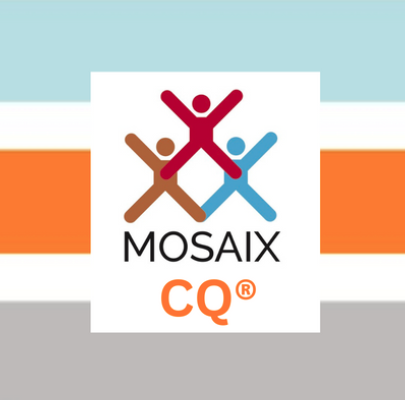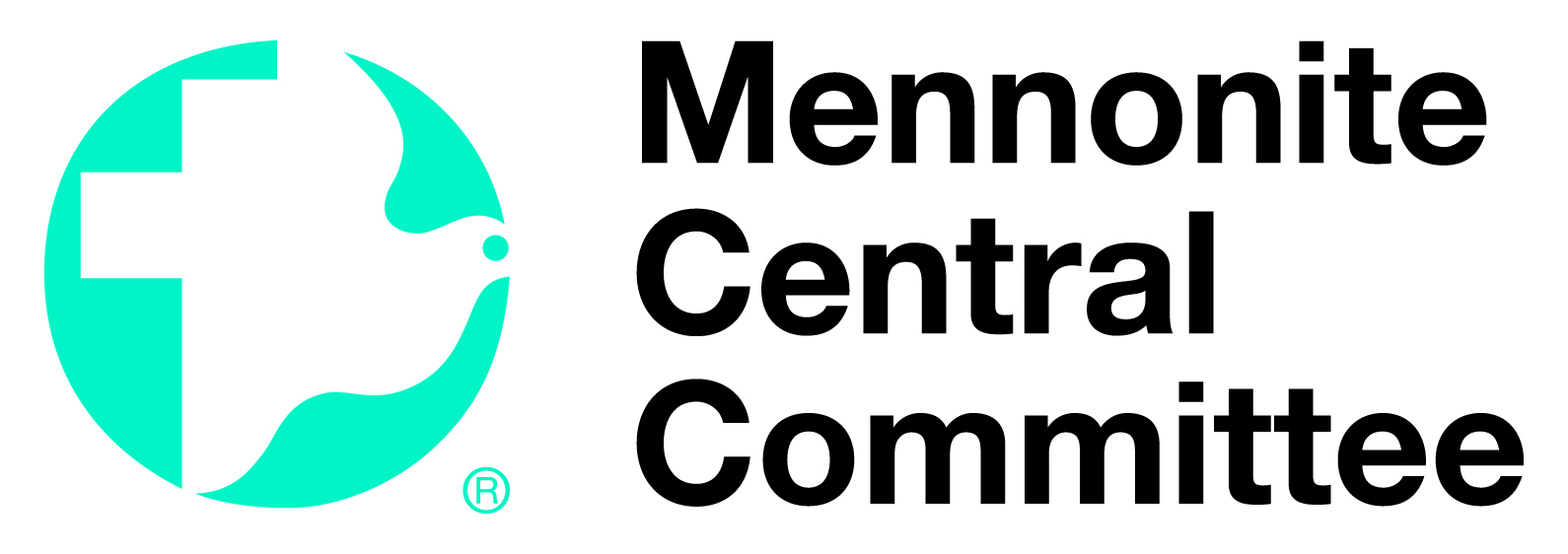2025 CCCU Imago Dei Conference
Indiana Wesleyan University, Marion, IN
OVERVIEW
The 2025 CCCU Imago Dei Conference: Pursuing Biblical Diversity, Belonging, and Hospitality is designed to be a space for educators within the CCCU to engage one another in dialogue, critical thinking and networking. The conference will include keynote sessions and workshops that showcase research and best practices on strategic campus transformation that will meet the needs of all students.
Additional information and exciting announcements regarding speakers, agenda and more will be updated here over the coming weeks and months.
AGENDA
Please note that this is a tentative agenda that will be updated as additional information becomes available. Registration, Vendors and Beverage Service in the Piazza. McConn Coffee Co. will be open at select times for purchases of coffee and specialty drinks. 1920 (Art) Gallery open for self-tours.
Wednesday October 8, 2025
3:00 pm – 5:30 pm Pre-Conference – Jones, Leedy, Bedford Banquet Rooms
- “Learning and Leading from Tragedy to Triumph”* – Ronald Morrell, Jr.
- “Imago Dei in Action: Collaborating for Biblical Unity and Belonging” – Panel: CCCU Diversity Commissioners
5:00 pm – 8:00 pm Registration/Information Desk – Barnes Student Center (BSC) Piazza
6:00 pm – 8:00 pm Welcome Reception – Barnes Student Center (BSC) Piazza
- Sponsored by Pioneer
Thursday October 9, 2025
7:30 am – 8:30 am Breakfast on Your Own
8:00 am – 5:00 pm Registration/Information Desk – Barnes Student Center (BSC) Piazza
8:00 am – 5:00 pm Exhibitor Showcase – Barnes Student Center (BSC) Piazza
8:30 am – 8:45 am Opening Worship – Phillippe Performing Arts Center (PPAC)
- IWU Praise Team
8:45 am – 8:55 am Welcome Remarks
- Dr. David Hoag, President, Council for Christian Colleges and Universities (CCCU)
8:55 am – 9:15 am Devotion
- Dr. Jon S. Kulaga, President Indiana Wesleyan University (IWU)
9:15 am – 10:00 am Trailblazer Awards and Plenary Session 1 – Trailblazer Panel – Phillippe Performing Arts Center (PPAC)
- Speaker Introductions – Dr. Ted Song and Dr. Karen A. Dowling
- Moderator – Rev. Dr. Esther Jadhav
- Panelists – Dr. Rebecca Hernandez and Rev. Dr. Michelle Loyd-Paige
10:00 am – 10:30 am Morning Break
10:30 am – 11:05 am Concurrent Sessions
- “Mission Possible: Employing Discernment to Effectuate Change” – Keith Hall
- “Andragogical Consideration: Promoting Belonging Aligned with Institutional Mission and Values” – Michele Wells
- “Structuring a Sense of Belonging for First-Generation Students” –Sanfrená Britt
10:30 am – 11:40 am Concurrent Sessions
- “One Mission, Many Voices: Cultivating Biblical Diversity Through Cross-Campus Collaboration” – Ted Song, Anne Tohme, Keith Jagger, Julie Gumm, Trisha Posey and Louise Cole
11:10 am – 11:45 am Concurrent Sessions
- “Kingdom Diversity in Action: Best Practices from Wheaton College” – Angulus Wilson and Vanessa Quainoo
- “The Beauty of Allyship” – Rob Dixon
- “Remaining Steadfast in Our Christian Commitment to Biblical Unity” – Nathaniel Perez
11:45 am – 12:45 pm Lunch – IWU Baldwin Dining Hall
12:30 pm – 1:30 pm Poster Sessions – Mallway
1:30 pm – 2:15 pm Plenary Session 2 – Phillippe Performing Arts Center (PPAC)
- Pastor Corey B. Brooks
2:15 pm – 2:45 pm Break
2:45 pm – 3:20 pm Concurrent Sessions
- “Can We Talk? (Biblical Mentorship & a Multigenerational Mentoring Brainstorming Session) “ – Cokiesha Bailey Robinson and Aaron T. Crabtree
- “Holy Disruption: Modeling Faithful Resistance” – Val Stokes and Rahn Franklin Jr.
- “Listening as Spiritual Practice: Engaging Stories of Migrant Care Through Podcast and Community Panel” – Scott Hwang and Gordon College Community Liaisons
- “Teaching and Assessing Intercultural Competence at a Christian University” – Dale Lemke and Juan Carlos Téllez
3:25 -4:00 pm Concurrent Sessions
- “Young Professionals of Color: Making an Impact Through Advocacy, Education and Celebration” – Todd Allen and Cherisse Daniels
- “DUNAMIS! Embracing the Power of God to Embrace the Imago Dei in Us All” – J. Goosby Smith
- “Are We There Yet? An Intercultural Think Tank” – Juan Carlos Téllez
- “Beyond Diversity: Cultivating Cultural Intelligence for Transformative Institutional Change” – Nate Chu and Greg Dyson
4:00 pm – 4:15 pm Afternoon Break
4:15 pm – 4:50 pm Concurrent Sessions
- “Cultivating Inclusive, Thriving Environments: APU’s Three-Pillar Model l” – Armando Bustos
- “Are Our Students of Color Succeeding Academically?” – Reuben Rubio, Melody Helvie and Amber Simos
- “Aligning Institutional Mission and Course Learning Outcomes” – Jill Swisher and Lori Doyle
4:55 pm – 5:30 pm Concurrent Sessions
- “Retaining Men and Women of Color at a Predominantly White Institution Through Supportive Groups” – Orlando Williams Jr. and LaVonne Alston
- “Measured Cultural Perspectives Within Higher-Level Christian Education “ – Harry Li and Graham McKeague
5:30 pm Dinner – included in registration – IWU Baldwin Dining Hall
Friday October 10, 2025
8:00 am – 9:00 am Breakfast on Your Own
9:00 am – 12:00 pm Exhibitor Showcase
9:00 am – 9:30 am Worship & Devotion – Phillippe Performing Arts Center (PPAC)
9:30 am – 10:15 am Plenary Session 3 – Phillippe Performing Arts Center (PPAC)
- Dr. Carlos Campo
“What’s in a Name? Embracing Identity and Belonging in Christ”
Shakespeare asked, “What’s in a name?” For Carlos Campo, the answer has been both personal and profound. In this session, Carlos will share how he struggled for years with his Hispanic heritage and even with his own name, wrestling with questions of belonging within the church and broader culture. He will reflect on his journey from hesitation to full embrace—celebrating diversity while recognizing that cultural identity, while meaningful, does not fully define people. Ultimately, as Christians, our truest identity is found in Jesus Christ, who calls us into an intercultural community of belonging and hope.
10:15 am – 10:45 am Morning Break
10:45 am -11:20 am Concurrent Sessions
- “From Competing to Intersecting Leadership Paradigms: Navigating the Tensions Between Personal and Institutional Leadership Frameworks in Student Development” – Sarah Chang
- “I Was Appointed—Now What? : Starting Belonging from Scratch” – Shondra Dickson and Curley Wilson
11:25 am -12:00 pm Concurrent Sessions
- “Sabbath as a Justice-Oriented Mental Health Tool” – De’Janae Tookes and Jhamal Mathis
- “Seeing Those with Disabilities Through a Biblical Lens to Promote Inclusivity” – Laurie Thompson
12:00 pm Closing Session & Communion – Globe Theatre
- CCCU D&I Commissioners
12:30 pm Meeting Adjourns
Conference Speakers
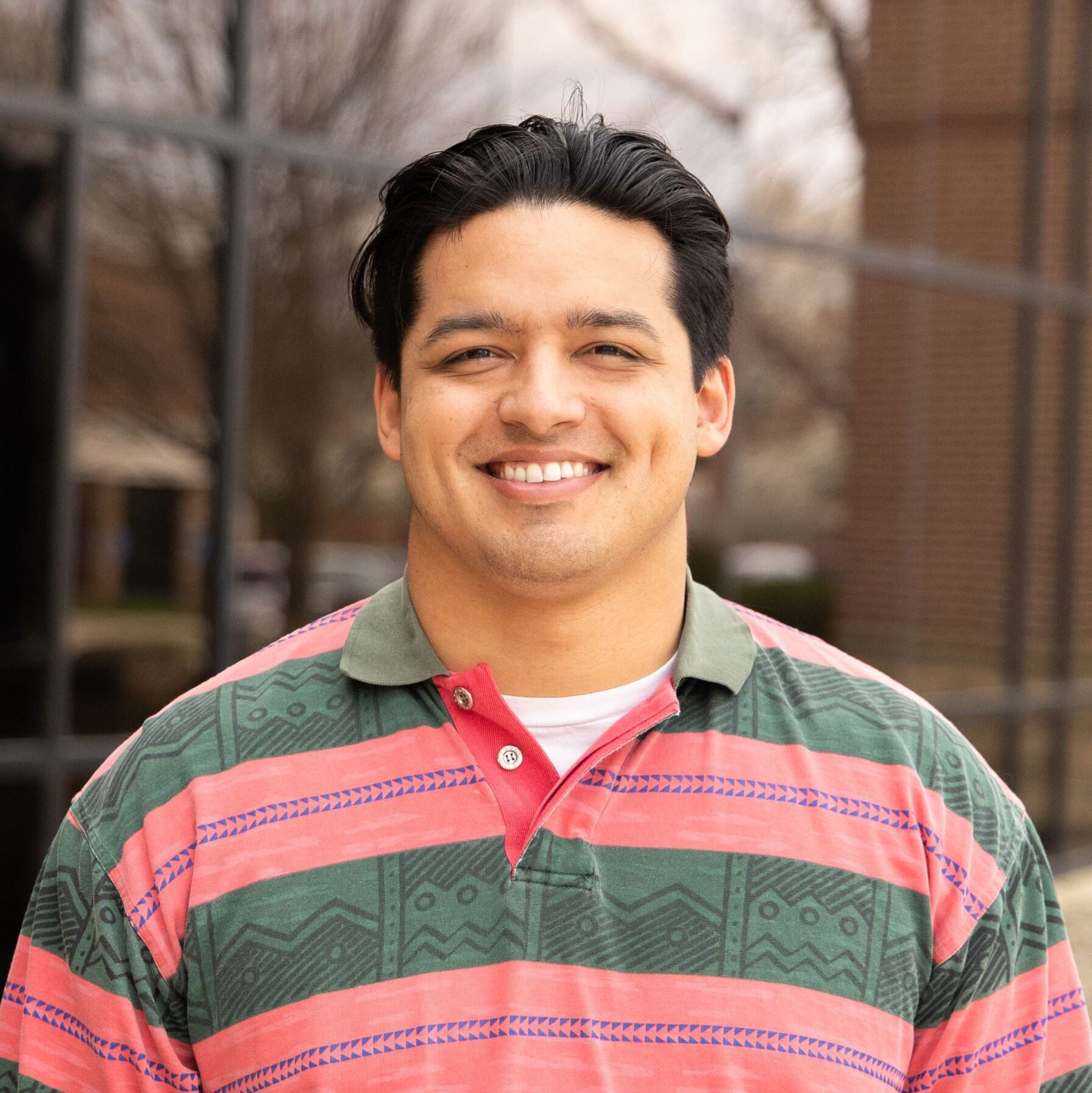
Jonathan Alvarado
Jonathan Alvarado
Jonathan Alvarado is the community engagement pastor at Indiana Wesleyan University, working to mobilize the students of IWU to make an impact in the city of Marion and Grant County. He earned his Bachelor of Science in music with an emphasis in recording technology from Evangel University. While there, he began his worship leading career at James River Church in Ozark, Missouri, before taking his first full-time associate pastor of worship position from Building Church in Huntsville, Alabama. There, he oversaw the worship ministry and worked as an audio engineer for all media produced by the church. In November 2020, Jonathan accepted the position of Worship Pastor at Traders Point Christian Church.
Jonathan is passionate about leading the local church in joyful, vibrant, Spirit-filled, multicultural and multigenerational worship.
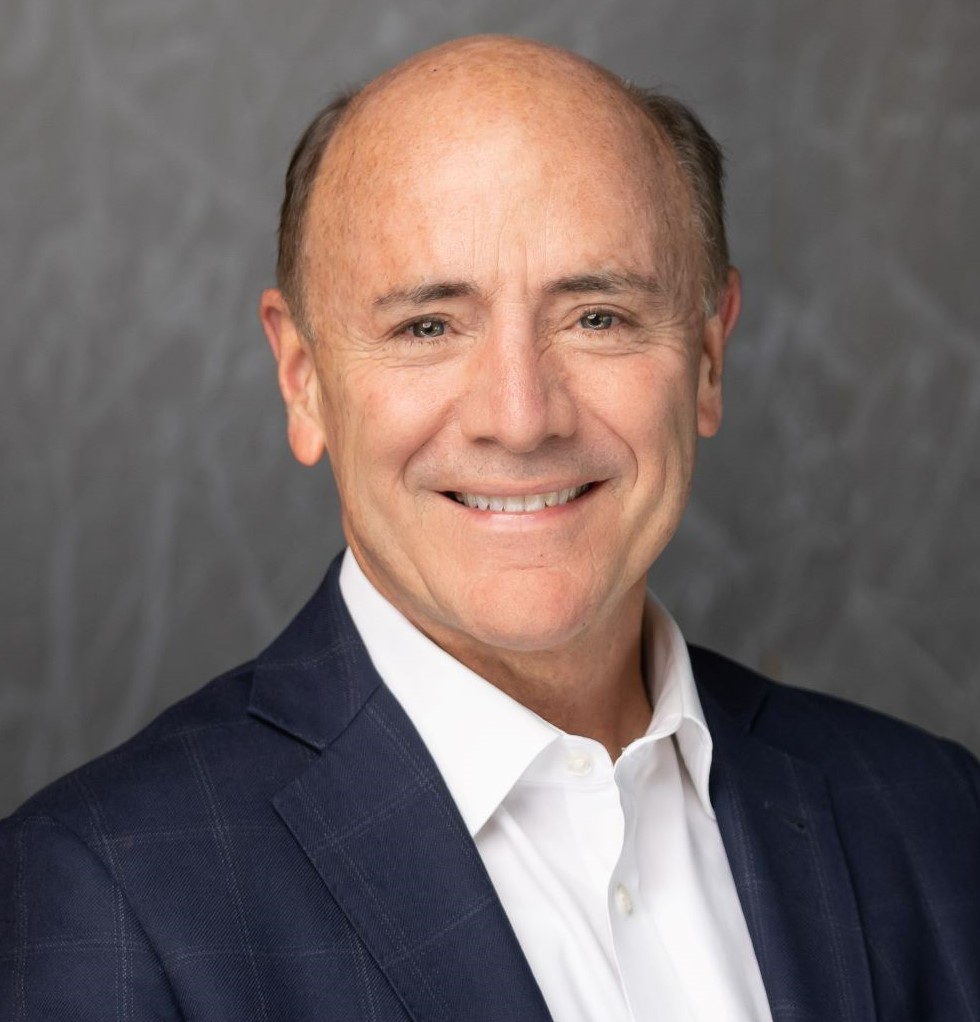
Carlos Campo, Ph.D.
Carlos Campo, Ph.D.
Carlos Campo, Ph.D., became CEO of the Museum of the Bible in Washington, D.C., in 2024 after serving as president of Ashland University (2015–2024) and Regent University. At Ashland, he led a $50 million campaign that raised over $100 million. A national advocate for Hispanic education, he serves as vice chair of the NHCLC and has been recognized as “Educator of the Year” and one of Crain’s “45 Notable Latino Leaders.” Campo holds a Ph.D. in English and has a rich family legacy in the arts and public life.
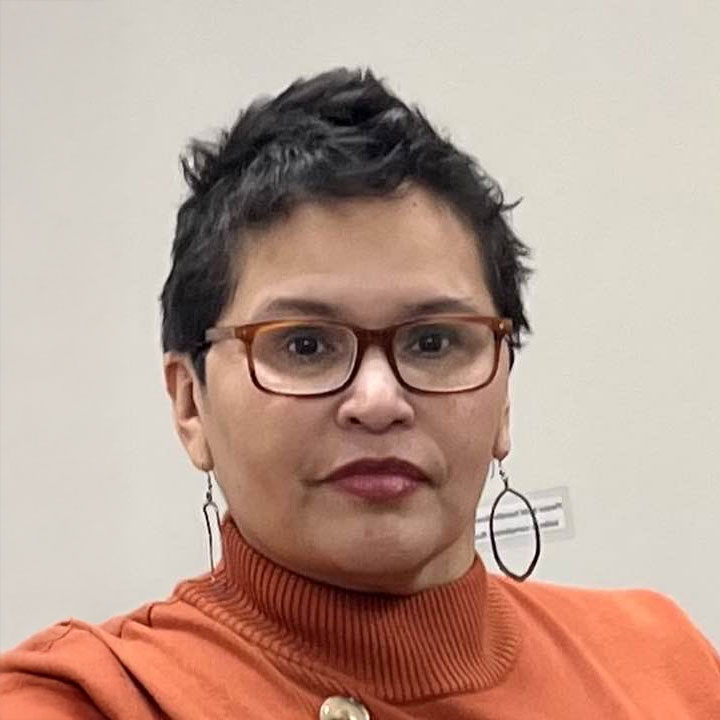
Rebecca Hernandez, Ph.D.
Rebecca Hernandez, Ph.D.
Rebecca Hernandez serves as the organizational development and racial equity director at Mennonite Central Committee (MCC), a faith-based international relief and development organization. Previously she worked at George Fox University and Goshen College. Throughout her career, Dr. Hernandez has developed and advocated for policies and programs to serve diverse communities through health and education. She completed her Ph.D. in human development and family studies at Oregon State University, her master’s in public administration at Portland State University and her B.A. in education at Southeastern University.
Dr. Hernandez has authored several articles and book chapters about Christian higher education and race, including in Diversity Matters (2017) and Thriving in Leadership (2012). Dr. Hernandez served on the inaugural CCCU Commission for Diversity and Inclusion and was the co-developer of the Multi-Ethnic Leadership Development Institute in 2011.
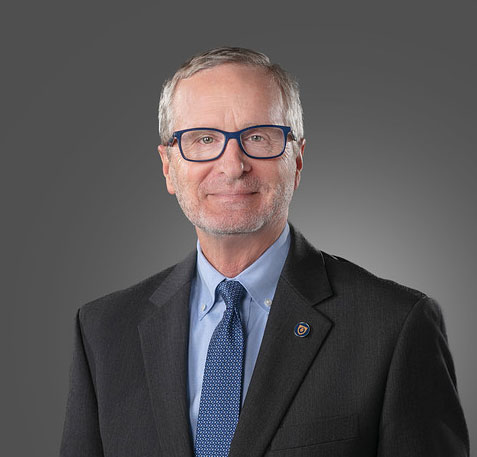
David Hoag, Ph.D.
David Hoag, Ph.D.
David Hoag, Ph.D., is the president of the Council for Christian Colleges & Universities (CCCU), the leading voice of Christian higher education. Hoag, a CCCU board member from 2021-2024, was most recently the president of Warner University, a CCCU institution in Florida, from 2016-2024.
Dr. Hoag demonstrated his lifelong dedication to Christian higher education through decades of leadership in Christ-centered universities, where he served in advancement and executive capacities. His record of success in accreditation, gift-giving and grant management effectively resourced the vision and mission of the schools he served as well as Christian higher education more broadly.
Dr. Hoag holds a bachelor’s degree in education from Asbury University, a master’s degree in education from the University of Kentucky and a Ph.D. in higher education from St. Louis University.
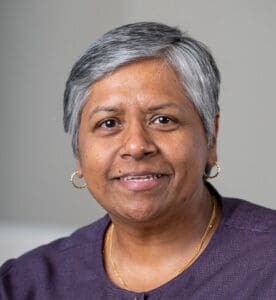
Rev. Esther Jadhav, Ph.D.
Rev. Esther Jadhav, Ph.D.
As a researcher and practitioner, Rev. Dr. Esther D. Jadhav works on developing initiatives and programs that elevate the critical role of theology in activating cultural responsibility as an institutional distinctive. Bringing her academic background in anthropology, sociology and theology, along with experiences in diverse settings, Esther combines her passion for Christian higher education and the Church to help communities thrive.
Esther provides institutional leadership and guidance across the university in all areas of cultural responsiveness and spiritual development, with primary responsibility for institutional outcomes rooted in Asbury’s commitment to be a Christian community that practices hospitality, mutuality, redemptive social action and grace-filled reconciliation.
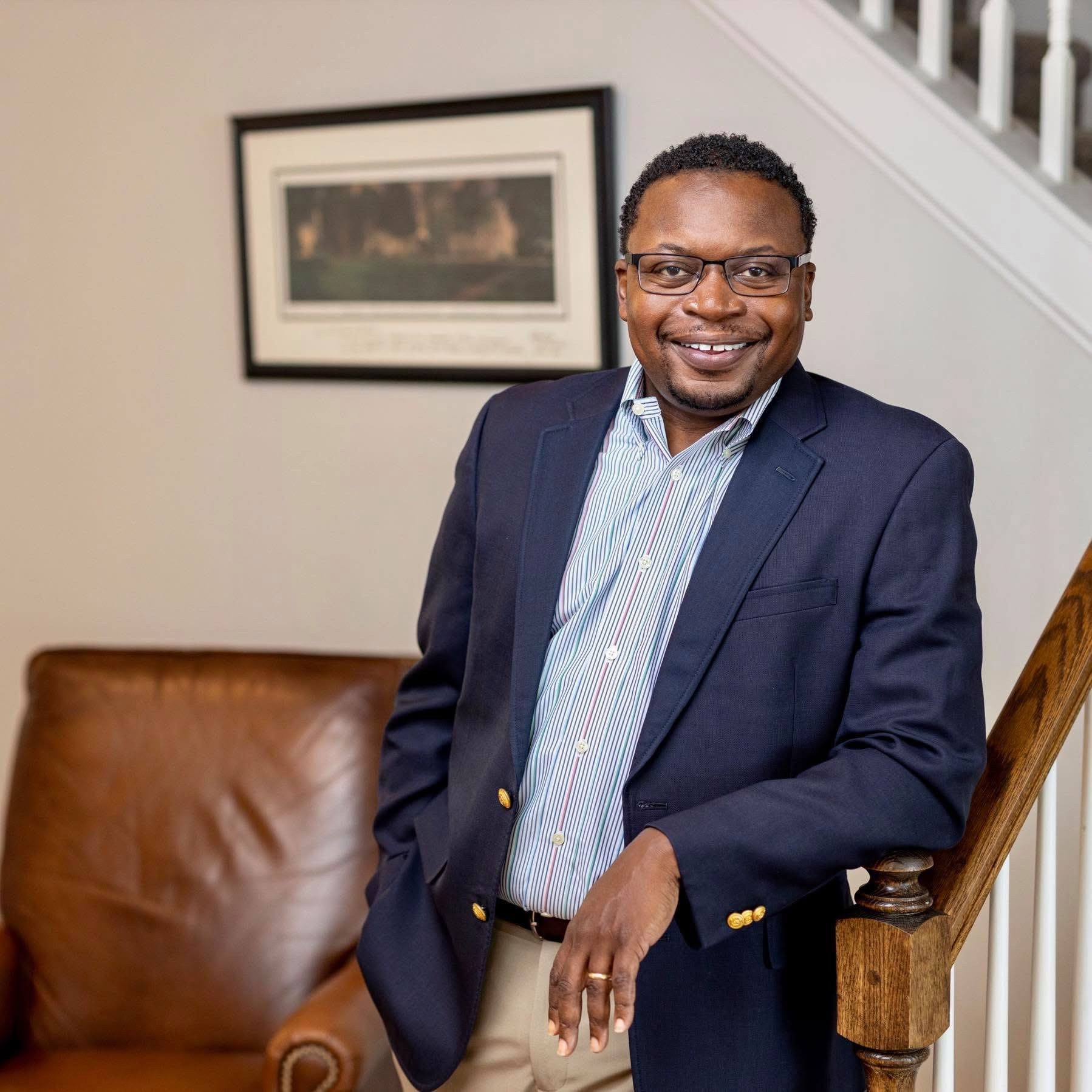
Dr. Brian L. Johnson
Dr. Brian L. Johnson
Dr. Brian L. Johnson, former President of Warner Pacific University (2020–2025), previously led Tuskegee University and Mercy College’s Manhattan campus. He holds an M.A. from the University of Wisconsin-Madison and a Ph.D. in English from the University of South Carolina. A Mellon Fellow and CIC “Pioneering President,” Johnson has earned numerous fellowships and leadership awards, including from ACE, AASCU, CCCU, and Harvard’s Du Bois Institute. He has authored seven scholarly books and serves on the American Council of Education’s Commission for Faith-based Universities.
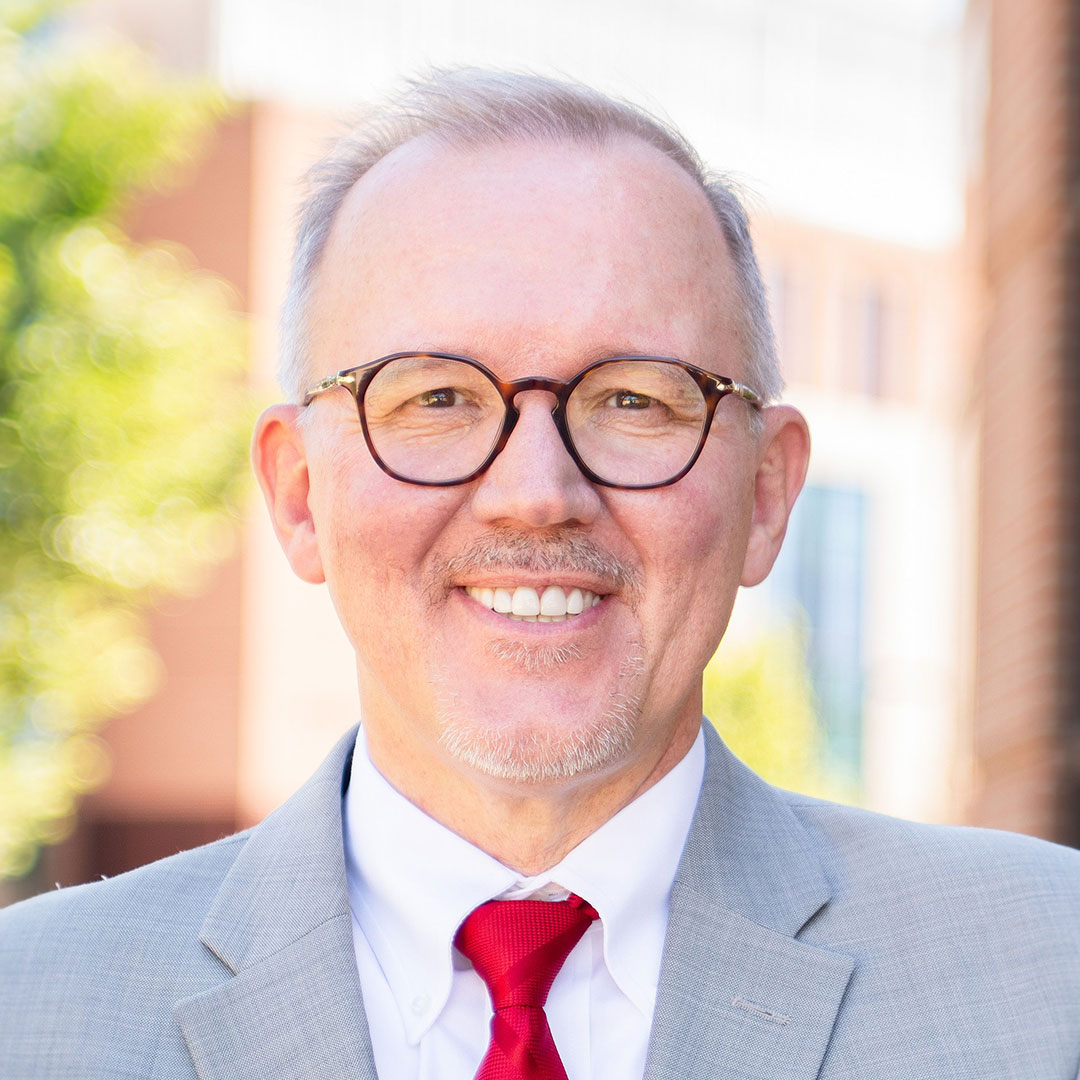
Jon S. Kulaga, Ph.D.
Jon S. Kulaga, Ph.D.
Dr. Jon S. Kulaga is the 10th president of Indiana Wesleyan University (IWU). Kulaga’s distinguished 38-year career in higher education demonstrates visionary leadership and strategic planning, including expertise in advancement, focus on innovation and a commitment to growing a Christ-centered university. Previously, Kulaga served as president of Ohio Christian University for five years and made notable achievements while serving in various executive and leadership roles, including chief academic officer and chief operating officer at Asbury University, and in academics, advancement and student life development roles at Spring Arbor University.
Kulaga holds a Ph.D. from Kansas State University, an M.A. from Michigan State University, and a B.A. from Spring Arbor College. He is an honorary Kentucky Colonel and has authored and contributed to six published books.
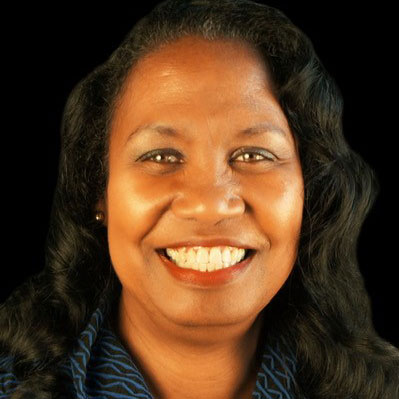
Rev. Michelle Loyd-Paige, Ph.D.
Rev. Michelle Loyd-Paige, Ph.D.
Rev. Dr. Michelle Loyd-Paige is an educator, author, speaker, podcaster, mentor and diversity consultant. Loyd-Paige completed her undergraduate work at Calvin College (now Calvin University) and received her Ph.D. in sociology from Purdue University. After retiring from a 38-year career in Christian higher education, both as teaching faculty and an administrator, she formally launched her own diversity consulting business. She is the coauthor of Diversity Playbook: Recommendations and Guidance for Christian Organizations. Loyd-Paige is also the founder and CEO of the nonprofit Preach Sista!, creating opportunities for people to deepen their faith and care for their souls, and she cohosts the Antioch Podcast: Conversations on Biblical Anti-Racism. Loyd-Paige is an ordained Christian minister serving on the teaching team and leading the liturgical dance ministry of Maple Avenue Ministries in Holland, Michigan.
Thursday Breakout Sessions
10:30 am – 11:05 am Concurrent Sessions
Mission Possible: Employing Discernment to Effectuate Change
Keith Hall | Jones A-B 133
Establishing diversity priorities as Kingdom distinctives within a Christian higher education institution is an imperfect, non-contiguous process that requires more than strategy. Even with a well-formed strategy, leading change can be an arduous task that is a labored, iterative process that may feel like navigating a maze filled with barriers and roadblocks. To accomplish progress, employing discernment is a necessity in an effort to cultivate a culture that allows diversity priorities to thrive and flourish. Leadership guru, Peter Drucker shared, “culture eats strategy for breakfast.” During this session, participants will reflect on five (5) points of practical wisdom that may be useful in cultivating a culture of curiosity, conversation, collaboration, and contribution that translates to effectuating change and establishing diversity as an institutional value.
Structuring a Sense of Belonging for First-Generation Students
Sanfrená Britt | Leedy 133-C
How do universities effectively reach first-generation students and create a pathway that is easy to follow so they can take advantage of planned resources and initiatives? This workshop seeks to demonstrate simple outreach strategies that do not strain your budget, while offering best practices to help students be successful as the firsts in their families to go to college and graduate.
Andragogical Consideration: Promoting Belonging Aligned with Institutional Mission and Values
Michele Wells | Bedford 133-D
A sense of belonging within campus communities is established through activities that enhance student and faculty experience. A student’s sense of belonging is associated with an increase in persistence, learning engagement and development of identity (Finkelstein & Young, 2024). This can present challenges in the online environment. Considering belonging as foundational to the institution’s mission and values, this session will examine inclusive andragogical approaches integrating faith with strategies that assist students and faculty to achieve the sense of belonging that champions the mission and values of the institution.
10:30 am – 11:40 am Concurrent Sessions
One Mission, Many Voices: Cultivating Biblical Diversity Through Cross-Campus Collaboration
Ted Song, Anne Tohme, Keith Jagger, Julie Gumm, Trisha Posey and Louise Cole | Globe Theatre 132
This panel-led discussion session will explore how John Brown University advances Kingdom diversity through collaborative, mission-driven strategies. Grounded in board-approved institutional commitments that articulate JBU’s biblical understanding of diversity and intercultural engagement, a six-member panel representing academics, student development, spiritual formation and marketing & communications will discuss how cross-departmental collaboration fosters biblical diversity across the entire campus community—including among faculty, staff and students. Panelists will share practical models rooted in JBU’s mission of “preparing people to honor God and serve others” and will offer replicable ideas for CCCU campuses, presenting a unified approach to cultivating a Christ-centered culture that better reflects the diversity of God’s Kingdom.
11:10 am – 11:45 am Concurrent Sessions
Kingdom Diversity in Action: Best Practices from Wheaton College
Angulus Wilson and Vanessa Quainoo | Jones A-B 133
This workshop will highlight Wheaton College’s commitment to Kingdom diversity as a theological, institutional and communal priority. Grounded in the Gospel and expressed through actionable programming, Wheaton has cultivated a distinctive model of diversity that integrates worship, learning and community life. This presentation will offer transferable strategies and best practices for Christian institutions seeking to build Kingdom-centered approaches to biblical unity and belonging.
The Beauty of Allyship
Rob Dixon | Bedford 133-D
Imagine an organizational setting where everyone is cared for and empowered. The concept of allyship offers one way to make such a vision a reality. This workshop will articulate seven distinct types of allyship behaviors, and attendees will be encouraged to discern tangible next steps for how to express allyship in their ministry contexts. Come learn how to more deliberately and effectively support your coworkers as you go about your ministry together.
Remaining Steadfast in Our Christian Commitment to Biblical Unity
Nathaniel Perez | Leedy 133-C
For Christian colleges and universities to be a credible witness and remain relevant, institutional commitment to diversity is essential. Christian institutions of higher education must determine the role that diversity initiatives play in the context of their institutional mission. In this breakout session, learn how Christian institutions that value biblical unity as a mission can thrive while educating in challenging times.
2:45 pm – 3:20 pm Concurrent Sessions
Can We Talk? (Biblical Mentorship & a Multigenerational Mentoring Brainstorming Session)
Cokiesha Bailey Robinson and Aaron T. Crabtree | Jones A-B 133
Every generation has distinctive strengths, gifts and opportunities for growth. Come glean insights and grow in a session on biblical mentorship, including a discussion about helpful ways to support multigenerational mentorship. Some generations desire for mentees to be humble, curious and available to listen to their wisdom. Some simply want to be seen, heard and validated by the mentor, and to have a relationship where they can mentor the mentor as well. This session will explore mentoring relationships in the Bible. We will also dedicate time to discuss what different generations desire in mentor & mentee relationships.
Holy Disruption: Modeling Faithful Resistance
Val Stokes and Rahn Franklin Jr. | Bedford 133-D
What does it mean to pursue biblical justice and belonging as we dignify difference in our current sociopolitical context? How do we advocate in such a time as this? What prophetic and pastoral models of change can we leverage? In this session, we will explore pathways of remembering, re-centering and rooting in faithful resistance. Through discussion, we will exchange ideas about how we, individually and institutionally, can live out faithful resistance proactively in the face of challenges and societal trends. Together, we’ll engage theological imagination to build agency and advocate with conviction.
Listening as Spiritual Practice: Engaging Stories of Migrant Care Through Podcast and Community Panel
Scott Hwang and Gordon College Community Liaisons | Globe Theatre 132
How can the spiritual discipline of listening transform our approach to justice, care and institutional change? In this workshop, we reflect on the practice of listening through two experiences: a student-hosted podcast featuring an interview with the director of the Mygration Christian Conference, and a community panel discussion with scholars and frontline practitioners in migrant care. These conversations created space for storytelling, empathy and theological reflection rooted in the experiences of migrants and those who serve them. Participants will explore listening as a spiritual discipline and as a method of engagement that bridges academic and community spaces while fostering learning and spiritual growth.
Teaching and Assessing Intercultural Competence at a Christian University
Dale Lemke and Juan Carlos Téllez | Leedy 133-C
This longitudinal and mixed methods study examined growth and decline in intercultural competence among university students at University of Northwestern, St. Paul using pre- and post-test scores on the Intercultural Development Inventory (IDI). Descriptive analysis shows moderate growth of 3.51 points in mean developmental orientation scores with 29.9% of students experiencing decline, 15.6% of students remaining stable and 54.4% of students experiencing growth. The study also explored student perceptions of factors contributing to growth in intercultural competence through reflective journaling. Deductive analysis revealed the impact of formal learning, experiential learning and relationships on their growth in intercultural competence. Implications for teaching and assessing intercultural competence will be emphasized.
3:25 -4:00 pm Concurrent Sessions
Young Professionals of Color: Making an Impact Through Advocacy, Education and Celebration
Todd Allen and Cherissa Daniels | Jones A-B 133
Younger professionals, particularly younger professionals of color, often face unique challenges in the workplace. They have the distinct position of being early in their careers while also possibly being one of few people of color in their respective areas. To address the potential challenges in this area, Messiah University through the Office of Diversity Affairs established the Young Professionals of Color, a group designed to provide space for the personal, professional and spiritual growth of employees. This workshop will address the need for such resource groups and present ideas for how to design a program that is beneficial to the employees and the university as a whole.
DUNAMIS! Embracing the Power of God to Embrace the Imago Dei in Us All
J. Goosby Smith | Bedford 133-D
Most of us in Christian higher education remain committed to connectedness, cohesion, unity, intellectual development, truth, fairness, developing Christ-like minds, mutual edification and treatment of people as if we witness the imago Dei in each other—and in ourselves. In this session, you will learn and try out “DUNAMIS!”: Pepperdine University’s strategy for promoting a sense of belonging among and between its myriad and varied internal and external stakeholders. After learning the scriptural inspiration for our “DUNAMIS!” framework and seeing the projects completed at our university, you will have a chance to experiment with whether or not this framework can help you envision ways to further improve your own campus. Collected ideas will be captured, collated and disseminated to session attendees for their future consideration.
Are We There Yet? An Intercultural Think Tank
Juan Carlos Téllez | Globe Theatre 132
In this session, explore three broad questions pertaining to pedagogy and intercultural competence. First, what exactly are we hoping our students will know, be and do? Second, what are the best contextual methods, particularly in the classroom, to get them there? Third, how do we know when they have arrived?
Beyond Diversity: Cultivating Cultural Intelligence for Transformative Institutional Change
Nate Chu and Greg Dyson | Leedy 133-C
This session will explore how moving beyond representational diversity towards cultural intelligence and competency fosters deeper unity and institutional transformation. Drawing from biblical principles and practical frameworks, we’ll discuss how Christian higher education can embody a more accurate representation of Revelation 7:9—one that forms leaders equipped to navigate complexity with grace, humility and cultural responsiveness. Attendees will leave with tools to cultivate environments where diversity flourishes into discipleship, belonging and institutional renewal.
4:15 pm – 4:50 pm Concurrent Sessions
Cultivating Inclusive, Thriving Environments: APU’s Three-Pillar Model
Armando Bustos | Bedford 133-D
Azusa Pacific University’s Center for Reconciliation and Diversity (CRD) strategically designs pathways for student belonging and success through a three-pillar framework. This workshop will explore our innovative models, rooted in culturally responsive approaches and inclusive pedagogy, that: value and celebrate the rich diversity within our Christ-centered community and foster deep intercultural understanding. Guided by the principle of cultivating a university culture that embodies these values alongside a commitment to love God and neighbor, APU empowers all students to holistically grow and thrive in an inclusive, Christ-centered environment as an expression of its institutional mission.
Are Our Students of Color Succeeding Academically?
Reuben Rubio, Melody Helvie and Amber Simos | Globe Theatre 132
Previous data examined at our institution has shown that students of color have a significantly lower GPA and graduation rate than white students. In this study, we go a step further by grouping traditional undergraduate students who show similar potential for academic success—grouping by ACT test score—and updating this comparison. Join us in an examination of the data and a discussion of implications for future interventions.
Aligning Institutional Mission and Course Learning Outcomes
Jill Swisher and Lori Doyle | Leedy 133-C
Higher education institutions (HEIs) often have ambitious missions, but their reflection in practice is unclear. This session models the use of a Mission Statement Alignment Rubric to vet alignment between institutional mission statements and Course Learning Outcomes (CLOs). One study found that public institutions demonstrated marginally higher alignment, so we’ll discuss how Christian HEIs can do better, especially when those statements emphasize a commitment to Christian belonging and diversity. Aligning CLOs with these values is crucial for maintaining institutional identity and preparing students as effective Christian leaders. This presentation underscores the need for a strong mission-driven approach in curriculum development.
4:55 pm – 5:30 pm Concurrent Sessions
Retaining Men and Women of Color at a Predominantly White Institution Through Supportive Groups
Orlando Williams Jr. and LaVonne Alston | Globe Theatre 132
This session prioritizes the role of belonging within Christian higher education, promoting students’ academic and personal success. Support groups can foster connection, identity development and holistic growth. At Messiah University, support groups such as Men of Color Kickback and Queens of Color provide such spaces, enhancing students’ sense of belonging and contributing to improved retention and graduation rates. This presentation highlights how these groups support students of color and offers insights into replicating similar models at other institutions to foster belonging within supportive campus environments.
Measured Cultural Perspectives Within Higher-Level Christian Education
Harry Li and Graham McKeague | Leedy 133-C
In this presentation, we will present an overview of data collected over the last four years that illustrates the cultural perspectives of higher-level Christian education faculty, administration and students (including anonymized data from six CCCU schools). The Mosaix Institute has partnered with multiple higher-level Christian educational institutions to help improve the effectiveness of cross-cultural interactions. We have assessed more than 800 Christian educators using the CQ Assessment, a research validated tool that predicts work performance and leadership effectiveness while also measuring cultural values. Our dataset includes students, faculty, staff and administrators. Using anonymized group reporting, we will illustrate some of the main perspective differences that exist between constituency groups as well as provide suggestions to help build bridges between them.
Friday Breakout Sessions
10:45 am -11:20 am Concurrent Sessions
From Competing to Intersecting Leadership Paradigms: Navigating the Tensions Between Personal and Institutional Leadership Frameworks in Student Development
Sarah Chang | Leedy 133-C
Student leaders with immigrant backgrounds often find themselves navigating the complexities of a dual identity—balancing leadership frameworks that align with one cultural heritage while experiencing tension with another. In this space of cultural navigation, they encounter both explicit and implicit messages about what leadership should look like, absorbing values from home that emphasize cultural preservation and collective responsibility, while adapting to campus settings that prioritize individualism and independence. There is a deep need to help bicultural student leaders not only to reconcile the differences, but to leverage the tensions to cultivate a distinct and adaptive leadership style shaped by the intersection of competing cultural narratives.
I Was Appointed—Now What? : Starting Belonging from Scratch
Shondra Dickson and Curley Wilson | Bedford 133-D
Drawing from personal experience navigating leadership roles in Christian higher education, the presenters will offer practical tools, biblical grounding and compassionate encouragement for those starting from scratch. Together, we’ll explore how to assess institutional needs, prioritize action steps, build partnerships across departments and cultivate a culture of belonging in alignment with God’s heart. This is not a session for perfection—it’s a space for honest questions, shared wisdom and Spirit-led solutions. You’ll leave more confident, better resourced and spiritually refreshed to continue this Kingdom work.
11:25 am -12:00 pm Concurrent Sessions
Sabbath as a Justice-Oriented Mental Health Tool
De’Janae Tookes and Jhamal Mathis | Leedy 133-C
In justice-driven higher education spaces, burnout is a growing concern. This session explores Sabbath as a justice-centered mental health tool—offering rest not as a luxury, but as a spiritual discipline and resistance to “grind” culture. For Christian institutions, embracing Sabbath honors spiritual commitments while promoting holistic care for students. We will examine Sabbath’s role in addressing burnout and introduce complementary strategies such as boundary-setting and practical approaches for embedding rest and resilience into the rhythms of life, leadership and campus culture within Christian academic spaces.
Seeing Those with Disabilities Through a Biblical Lens to Promote Inclusivity
Laurie Thompson | Bedford 133-D
The imago Dei principle contains basic and foundational truths which provide a biblical lens for seeing and including those with disabilities. These truths include: Who does God say that we are? And who does God say He is? How we relate to these truths will impact how we live our lives and how we treat others, including those with disabilities. This session focuses upon an intentional mindset of being disability-inclusive through the power of God’s Word and the power of biblical perspective.
Registration Pricing
Exclusive Discount for CCCU Member Institutions
The CCCU is offering a $100 discount to CCCU members from the same member institution who register at least one attendee for the Imago Dei Conference!
Once your institution reaches one paid registrant, the price will be automatically discounted for each subsequent registrant from the same member institution.
Conference Rates
Early Bird
Regular
Late
Lodging & Travel Information
Hotel Options
4914 North Beaner Blvd. Gas City, IN 46933
7.1 miles from campus
Holiday Inn Express Marion Indiana
1000 North Baldwin Ave Marion, IN
3.9 miles from campus
1502 N. Baldwin Avenue Marion, IN, 46952
5.1 miles from campus
Airbnb
If you would rather stay in an Airbnb, please find nearby options here.
Travel
The closest major airport to Indiana Wesleyan University is the Fort Wayne International Airport (FWA) which is located 49 miles and approximately 60 minutes from campus. The average cost of an Uber is $55 one way. For information about rental cars at FWA, click here.
The next closest airport to Indiana Wesleyan University is the Indianapolis International Airport (IND) which is located 75 miles and approximately 1 hour and 30 minutes from campus. The average cost of an Uber is $100 one way.
Other Taxi Options
(260)-426-8555
(260)-446-7429
Indianapolis International Airport Taxi Service
Questions
We look forward to seeing you in Marion, Indiana at the Imago Dei Conference. Please email us if you have any questions.
Terms & Rules
Registration Eligibility and Process:
CCCU conferences and events are a benefit to faculty, staff, and administrators at our CCCU institutions, so they are typically closed to non-member individuals and institutions unless they are sponsors or speakers. There are some exceptions to this rule, so if you are a non-member interested in attending, please send your request to conferences@cccu.org
All registrations are reviewed to ensure they meet the CCCU eligibility policies. The CCCU reserves the right to refuse or cancel all ineligible registrations at any time and shall not be held accountable for any outside fees associated with this cancellation.
To register for the conference, click the Register button and sign in to your CCCU account. If you have any issues or if you forgot your log-in information, please call our office at (202) 546-8713 for assistance.
By registering for the conference, you are providing permission to receive emails, mailings, and faxes related to the conference. If you would like to opt-out from receiving the e-Advance Newsletter or if you wish to no longer receive emails from the Council for Christian Colleges & Universities, updates your preferences by logging into your MY CCCU account.
Full payment must accompany your registration. Please call the CCCU office at (202) 546-8713 if you need to make payment by check.
Cancellation Policy
You may cancel your registration at any time prior to the start of the program. If you must cancel, please email conferences@cccu.org. Refunds for cancellations received through Friday, September 5, 2025 will be issued minus a $50 processing fee. No refunds will be issued for cancellations received after Friday, September 5. No-shows are not refundable. Registration transfers will be honored at any time.

